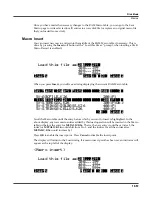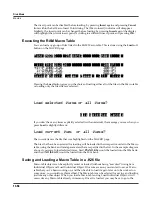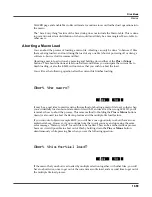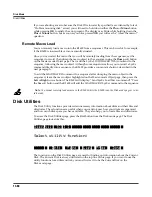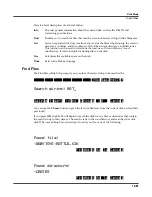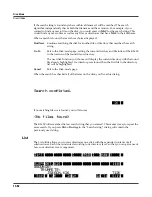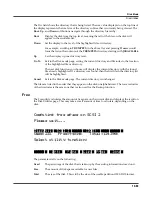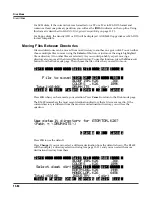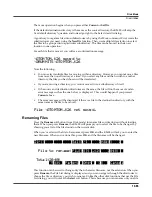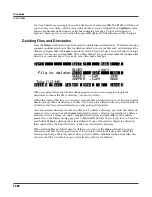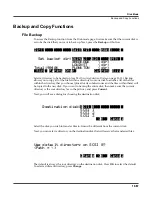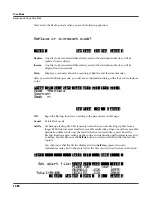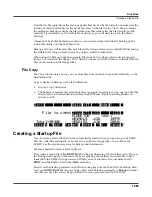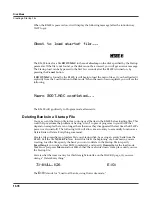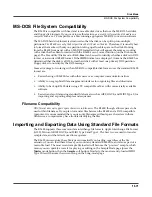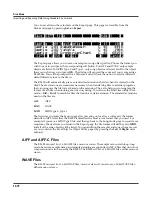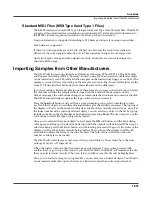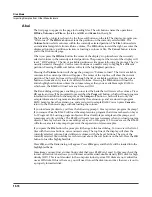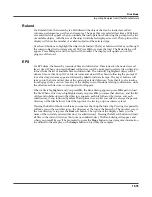
Disk Mode
MS-DOS File System Compatibility
13-71
MS-DOS File System Compatibility
The K2600 is compatible with Þxed and removable disk drives that use the MS-DOS hard disk
and ßoppy disk formats. If you want to use this feature,
you must Þrst format the disk media on a
computer
such as a PC compatible or a Mac running appropriate MS-DOS conversion software.
The MS-DOS hard disk format is structured so that the disk can be split up into multiple
partitions.
The K2600 uses only the Þrst partition that it Þnds on the disk
. Therefore, it is usually best
to format the media with only one partition taking up all usable space on the disk. Working
from the K2600 front panel with an MS-DOS formatted disk will appear the same as working
with a disk that has been formatted with the K2600Õs own Format function (on the Disk-mode
page). The Free utility (Disk mode->
Util
->
Free
) can be used to identify whether a disk is in DOS
format or in standard K2600 format. If the
(DOS)
indicator is displayed, it means the K2600 has
determined that the disk is a DOS-format hard disk with at least one primary DOS partition.
Floppy disks do not display the DOS message.
Some advantages of working with an MS-DOS compatible disk format over the standard K2600
format are:
¥
Easier sharing of K2600 Þles with other users over computer communications lines
¥
Ability to use graphical Þle management interfaces for organizing Þles and directories
¥
Ability to back up K2600 data using a PC compatible or Mac with commercially available
software
¥
Easier transfer of data using standard Þle formats such as AIFF, WAVE, and MIDI Type 0, for
importing and exporting samples and sequences
Filename Compatibility
DOS format does not support space characters in Þlenames
. The K2600, though, allows spaces to be
used within Þlenames. If you plan to transfer Þles between the K2600 and a DOS compatible
computer, it is recommended that you use only Þlenames without space characters in them.
Otherwise, a computer may have trouble identifying the Þles.
Importing and Exporting Data Using Standard File Formats
The K2600 supports three common data interchange Þle formats, Apple Interchange File Format
(AIFF), Microsoft RIFF WAVE, and MIDI Type 0 and Type 1. The Þrst two are used to transfer
sample data, and the latter is used for sequences.
The K2600 can recognize these Þle types automatically on loading, regardless of the Þle
extension. You can load these Þles as you would any standard K2600 Þle, and also as part of a
macro Þle load. The most recent sample Þle loaded will become the ÒpreviewÓ sample, which
means you can quickly access it for playing or editing on the SampleMode page (press the
Master
mode button, then the
Sample
soft button). Similarly, the most recently-loaded MIDI
Type 0 Þle will become the current song on the Song-mode page.
Summary of Contents for K2600 BEST OF VAST - REV A
Page 76: ......

